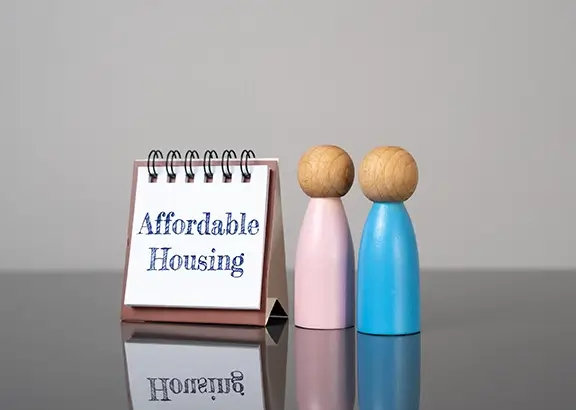Many newcomers to the United States wonder what government benefits they can access. From housing and food support to healthcare and education aid, there are several programs designed to offer government benefits for immigrants to help them build a stable life. However, eligibility often depends on your immigration status and the state you live in.
This guide breaks down the main federal and state programs that legal immigrants can apply for, how to access them, and where to find trusted resources for support.
Health and Nutrition Assistance for Immigrant Families
Access to nutritious food and healthcare is essential for every family. The U.S. offers several programs to help immigrants meet these needs.
Supplemental Nutrition Assistance Program (SNAP)
SNAP, often called “food stamps,” helps low-income families buy groceries. Lawful permanent residents (green card holders), refugees, and asylees can apply if they meet income limits. SNAP benefits come through an Electronic Benefits Transfer (EBT) card, which works like a debit card at grocery stores and many online retailers.
To learn more about eligibility and how to apply, visit Benefits.gov. For a detailed breakdown of the rules, see Can Immigrants Get Food Stamps? A Complete Guide.
Women, Infants, and Children (WIC) Program
The WIC program provides food assistance, nutrition education, and healthcare referrals to pregnant women and children under five. Many immigrant families qualify if they meet state income guidelines. Applications can be submitted through local health departments or community health centers.
Medicaid and CHIP
Medicaid offers free or low-cost health insurance to qualifying immigrants who meet residency and income requirements. Children and pregnant women often receive coverage sooner than adults. The Children’s Health Insurance Program (CHIP) extends healthcare to children in families who earn too much for Medicaid but still need assistance.
You can learn how to apply through Medicaid.gov or see our detailed article Can Immigrants Get Health Insurance in the U.S.? and CHIP Insurance Eligibility for Immigrant Families.
Medicare for Seniors and Individuals with Disabilities
Immigrants aged 65 or older who have lived in the U.S. for at least five continuous years may qualify for Medicare. Those who have worked and paid Medicare taxes for at least 10 years (40 quarters) usually receive premium-free Part A coverage. Visit Medicare.gov for eligibility details or see our article Medicare for Green Card Holders: Your Complete Guide.

Housing Assistance Programs
Affordable housing remains one of the biggest challenges for immigrant families. The U.S. Department of Housing and Urban Development (HUD) manages several programs to help low-income residents find safe, decent homes.
Public Housing and Section 8 Vouchers
Public Housing offers government-owned apartments, while Section 8 Housing Choice Vouchers let families rent privately owned homes with government support. Eligibility depends on income, family size, and immigration status.
For more details, visit HUD.gov. You can also explore Where to Find Affordable Housing in the U.S. for additional guidance.
Financial and Family Support Programs
Several federal programs assist immigrant families who need short-term financial help or long-term stability.
Temporary Assistance for Needy Families (TANF)
TANF provides monthly cash payments to low-income families with children. Many states require a five-year residency period, though some waive it for refugees and other qualified groups. TANF also supports job training and childcare. Applications are usually handled through local social service offices or Benefits.gov.
Supplemental Security Income (SSI)
SSI offers financial help to elderly, blind, or disabled individuals who have limited income and resources. Some immigrants, such as refugees, asylees, and certain lawful permanent residents, can qualify after meeting specific requirements. Visit SSA.gov to check eligibility and apply.
Educational Assistance for Immigrant Students
Education is a key part of building a successful future in the U.S. Several programs help immigrants and their children access quality education.
Federal Student Aid (FAFSA)
Legal immigrants can qualify for federal student aid through the FAFSA program, which includes grants, loans, and work-study options. Eligible non-citizens such as refugees, asylees, and green card holders can apply through StudentAid.gov.
Pell Grants
Pell Grants are need-based financial awards that do not require repayment. They help undergraduate students pay for tuition, books, and living costs. Apply directly through FAFSA to determine your eligibility.
State and Local Education Programs
Some states provide additional aid or in-state tuition for immigrants. Community colleges often offer affordable tuition and English-as-a-Second-Language (ESL) programs. For families with school-age children, see A Guide for Immigrant Families on How to Enroll Your Child in Public School.

Legal Assistance and Protection
Navigating immigration paperwork and benefits can be overwhelming. Fortunately, free or low-cost legal help is available.
DOJ Recognition and Accreditation Program
The U.S. Department of Justice’s Recognition and Accreditation Program certifies nonprofit organizations and lawyers to provide immigration legal services. This ensures that families receive accurate and ethical guidance.
Community Legal Aid and Nonprofit Support
Many community centers, religious groups, and nonprofits host free legal clinics and information sessions. You can search for verified providers at LawHelp.org.
State and Local Assistance Programs for Immigrants
In addition to federal programs, many states offer their own support services. Eligibility and availability vary by location, but these resources can be invaluable.
State-Level Benefits
States like California, New York, and Illinois have expanded benefits for legal immigrants. For example, California offers CalFresh (its version of SNAP) and Medi-Cal for low-income residents regardless of immigration background. New York has the Essential Plan, which provides low-cost health coverage.
Local Resources
County and city agencies often assist with food banks, rental support, and language learning. To find programs in your area, search by ZIP code on Benefits.gov or your local government’s website.
How to Manage Your Applications and Renewals
Applying for multiple programs can feel confusing, but staying organized will make the process easier.
Keep Track of Documents
Always keep copies of your green card, Social Security number, proof of income, and residency documents. Some benefits require recent bank statements or lease agreements as proof of address. Store everything in a secure folder or scan copies into a password-protected cloud account.
Set Reminders for Renewals
Most programs require periodic renewals. Mark your calendar or use free reminder apps like Google Calendar or Todoist to avoid missing deadlines.
Use Online Tools
You can submit many applications or updates through official portals such as Healthcare.gov, StudentAid.gov, or your state’s benefits portal. Doing so saves time and ensures accuracy.
Language and Accessibility Support
Many immigrants face language barriers when dealing with government programs. Fortunately, help is available.
Translation and Interpretation Services
Most federal and state agencies provide free interpretation through Language Access Programs. When visiting an office, ask for assistance in your native language. Websites like LEP.gov explain your rights to free language services.
Multilingual Resources
Many application websites offer forms in Spanish, Chinese, Vietnamese, Arabic, and Tagalog. Local libraries and immigrant centers also provide in-person translation help and computer access for completing forms.
How to Stay Informed and Avoid Scams
Scammers sometimes target immigrants by offering fake government services or benefits. Protect yourself by using only official websites ending in .gov and never sharing personal information with unverified sources.
You can verify programs or report fraud to the Federal Trade Commission (FTC). Always double-check eligibility or fees through Benefits.gov before applying for any service. You can also check out our articles 15 Most Common Types of Online Scams Targeting Immigrants and Latest Phone Scams Targeting Immigrants in 2025.
Building a Stable Future Through the Right Resources
Government benefits for immigrants exist to promote stability, health, and education for families beginning a new life in the U.S. Understanding which programs you qualify for and how to apply effectively can make a major difference in your journey toward financial and personal security.
If you’re managing your family budget while adjusting to life in the U.S., explore related resources on our website:
With careful planning and the right guidance, you can take full advantage of the benefits designed to help immigrants build strong, stable futures in their new communities.

